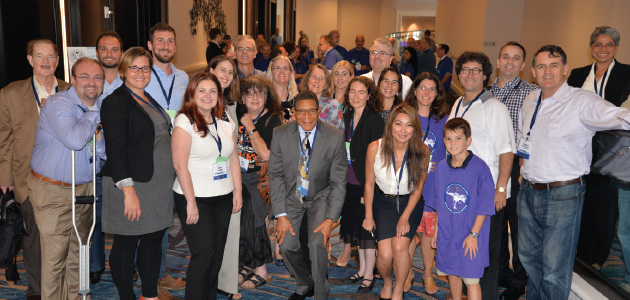It has happened to virtually every attorney who practices law: The attorney identifies a problem that only legislation can correct. In some instances, a poorly drafted statute produces a result that could not have been intended by the legislature. In others, novel problems require entirely new legislation.
But how can an individual attorney bring that legislation into existence? The Bar Association of San Francisco’s (BASF) Delegation to the Conference of California Bar Associations (CCBA) offers that opportunity.
In recent years, the CCBA has sponsored more successful pieces of legislation than any other organization in California.
The process begins at the local level: Members of local bar associations (including BASF) form delegations that sponsor proposed legislation. All of the local delegations then meet at an annual conference to debate the proposals and to vote whether to approve the proposed legislation. The CCBA’s lobbyist, Larry Doyle, then finds legislators willing to introduce the proposed legislation that has been approved by the CCBA as a bill in the legislature. The bill then follows the legislative process. In some instances, this provides the opportunity to appear before legislative committees to explain the purpose of the bill to members of the legislature. And if the bill passes the legislature and is signed by the governor, it becomes law.
 A member of BASF’s delegation, Alicia Gámez, Gámez Law, recently saw the need for legislation and acted. Gámez brought a court reporter to a hearing to create a record in anticipation of an appeal. The court barred the court reporter from transcribing the proceedings, citing a local rule requiring the consent of the opposing party to the court reporter’s participation at the hearing. The practical effect was that the opposing party could prevent the creation of a record of the hearing. The court then prohibited the court reporter from taking private notes from the audience.
A member of BASF’s delegation, Alicia Gámez, Gámez Law, recently saw the need for legislation and acted. Gámez brought a court reporter to a hearing to create a record in anticipation of an appeal. The court barred the court reporter from transcribing the proceedings, citing a local rule requiring the consent of the opposing party to the court reporter’s participation at the hearing. The practical effect was that the opposing party could prevent the creation of a record of the hearing. The court then prohibited the court reporter from taking private notes from the audience.
Gámez proposed legislation through BASF’s delegation to the CCBA providing that a party’s right to have a court reporter could not be eliminated by the opposing party or the court. It was passed into law through the CCBA. “The CCBA is an example of grassroots democracy in action. It offers the means for attorneys, ordinary citizens who work with the law every day, to make material changes to the law,” Gámez noted.
The first step to becoming involved in the legislative process through the CCBA is to join BASF’s delegation. If you are interested, email Jack Hannan at jhannan@sfbar.org.
About the author:
Jim Lamping, Law Office of James P. Lamping, is an attorney specializing in estate planning, trust and probate administration, and litigation related to these areas. His practice is located in the Bay Area and Wine Country.



